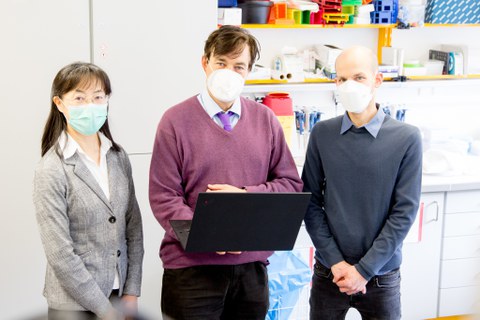14.05.2021
Building Bridges in Times of Brexit
The joint PhD training program at Technische Universität Dresden and King's College London will be continued, thus continuing what the Deutsche Forschungsgemeinschaft (DFG, German Research Foundation) considers to be an outstanding project that serves as an international role model. The DFG is providing a further 5.85 million euros over the next four and a half years to research new strategies against metabolic diseases such as diabestes and obesity. The total funding volume of the project, which started in 2017, amounts to almost eleven million euros.
The integration of the research group into the model of the transCampus, which was established in 2015, offers the doctoral students an ideal environment for their individual success. With the established training courses, conferences, virtual and digital technologies, an outstanding platform has been developed within the international-translational training programs, which is gaining additional importance, especially in times of Brexit. Scientists and physicians are building bridges across the Channel.
In the first funding period, the members of the "International Research Training Group (IRTG) 2251: Immunological and Cellular Strategies in Metabolic Disease (ICSMD)" have already contributed significantly to successfully advancing research projects. Based on their scientific work, the innovative research projects for the PhD students of the second funding period have been developed. The current aim is to transfer the results into clinical application. Strategies for immune metabolism, cell regeneration and cell replacement will be developed, and new insights into understanding diabetic complications will be gained.
Working in two different academic environments with shared supervision stimulates research and opens new perspectives. Students in the college gain experience with different research traditions and cultures, which improves their qualifications for increasingly challenging research tasks. In addition, they are able to expand their own scientific network.
The effects and traction that such an alliance can develop are clearly illustrated by the collaborations in medicine and biotechnology. In islet cell, kidney and bone marrow transplantation, the transCampus London - Dresden is now one of the largest transplant centers in the world. For example, previously incurably ill children in Saxony have benefited from new gene therapies from London. Even if a complete cure is not yet possible, those affected regain a great deal of quality of life.

